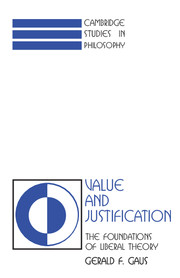Summary
This book is intended to be a contribution to axiology, moral theory, and political philosophy. However, those interested in these fields are apt to find much of the material unfamiliar. It is perhaps advisable to alert readers at the outset of the ways in which this book is unlike most others in these fields.
Most obviously, in the second chapter I offer a fairly detailed analysis of emotions. In the course of this analysis, I explore problems in the philosophy of mind as well as the psychology and neurophysiology of emotions. Students of ethics and political philosophy may be tempted to skip these discussions, supposing that they are not important for the arguments concerning morality and justification that are presented in Part II. But they really are foundational: the theory of emotion is the basis for the theory of value. I will try to show that once we have resolved some of the issues concerning, say, the intentionality of feeling states in the context of the theory of emotion, many puzzles are resolved, and pitfalls avoided, in the theory of value. And, once we have a good grasp of the nature of value, we are in the position to approach some of the problems of contemporary moral and political philosophy in a new light.
- Type
- Chapter
- Information
- Value and JustificationThe Foundations of Liberal Theory, pp. xiii - xviiiPublisher: Cambridge University PressPrint publication year: 1990

